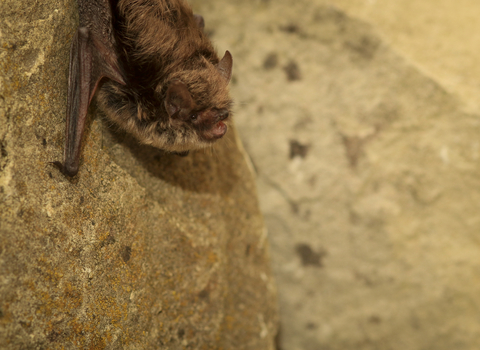
©Tom Marshall
Whiskered bat
The small, shaggy-furred whiskered bat roosts in all sorts of houses, old or modern. It is similar to the Brandt's bat and they often roost together, but in separate colonies. It feeds along familiar routes, such as hedgerows and woodland edges.
Scientific name
Myotis mystacinusWhen to see
April to OctoberSpecies information
Category
Statistics
Length: 3.5-4.8cmWingspan: 21-24cm
Weight: 4-8g
Average lifespan: 4-5 years
Protected in the UK under the Wildlife and Countryside Act, 1981. European Protected Species under Annex IV of the European Habitats Directive.
